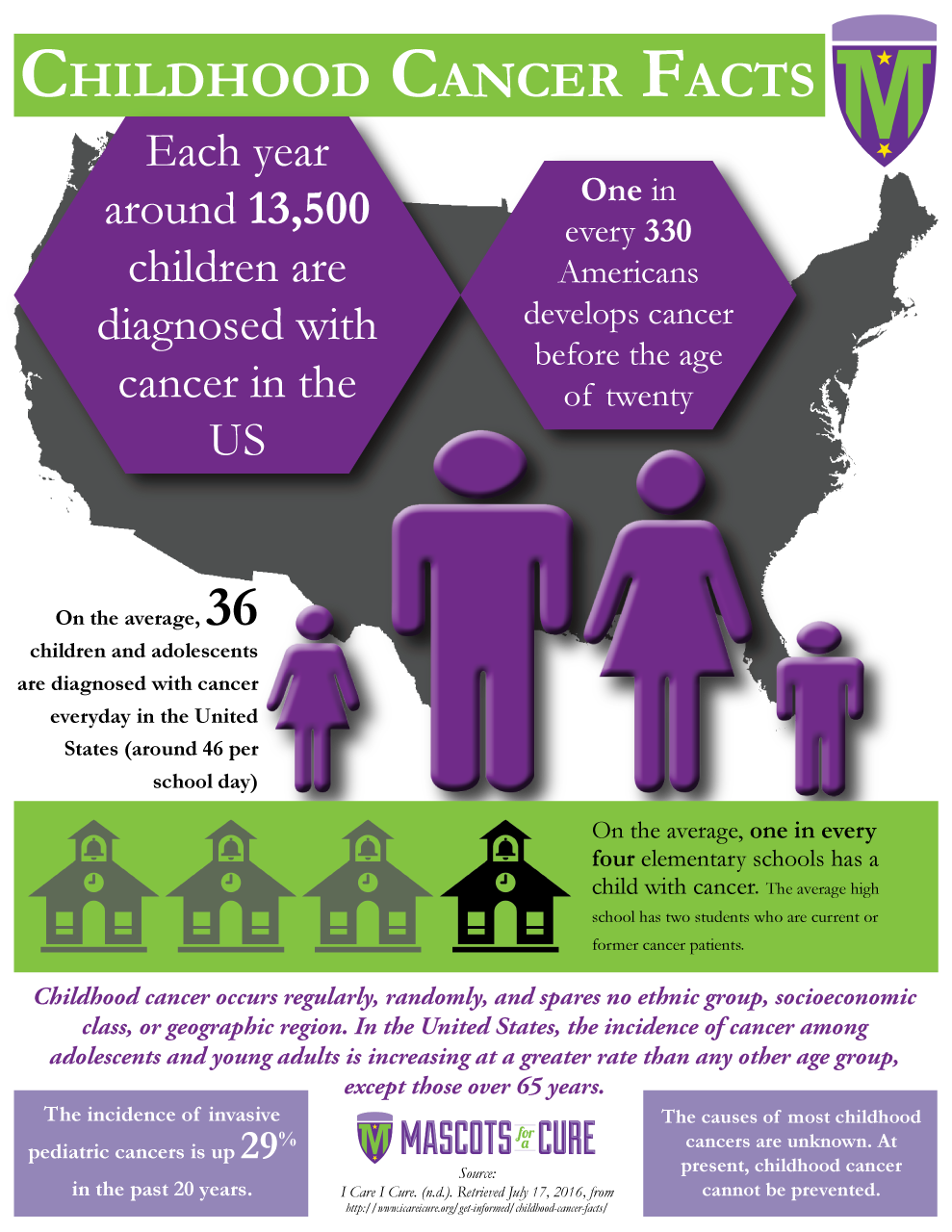Download the infographic as a PDF
Childhood Cancer Facts:
- Each year around 13,500 children are diagnosed with cancer in the US
- One in every 330 Americans develops cancer before the age of twenty.
- On the average, 36 children and adolescents are diagnosed with cancer everyday in the United States (around 46 per school day).
- On the average, one in every four elementary schools has a child with cancer. The average high school has two students who are current or former cancer patients.
- The incidence of invasive pediatric cancers is up 29% in the past 20 years.
- The causes of most childhood cancers are unknown. At present, childhood cancer cannot be prevented.
- Childhood cancer occurs regularly, randomly and spares no ethnic group, socioeconomic class, or geographic region. In the United States, the incidence of cancer among adolescents and young adults is increasing at a greater rate than any other age group, except those over 65 years.
More Facts about Childhood Cancer:
- Each year around 13,500 children are diagnosed with cancer in the US. That’s more than a classroom of kids a day.
- 35,000 children are currently in treatment for cancer.
- Some 25% of all kids who are diagnosed with cancer die.
- More children die of cancer every year than adults died in 9/11.
- Cancer kills more children than AIDS, asthma, diabetes, cystic fibrosis, and congenital anomalies combined.
- The average age of death for a child with cancer is 8, causing a child to lose 69 years of expected life.
- The death of a child is one of the most traumatic events a family might face.
- Families who have lost children are often financially and emotionally depleted.
- 4% of childhood cancer survivors have chronic illnesses, and some 40% of childhood cancer survivors have severe illnesses or die from such illnesses.
- Childhood cancer survivors are at significant risk for secondary cancers later in life.
- Cancer treatments can affect a child’s growth, fertility, and endocrine system. Child survivors may be permanently immunologically suppressed.
- Radiation to a child’s brain can significantly damage cognitive function; or if radiation is given at a very young age, it can limit the ability to read, do basic math, tell time, or even talk.
- Physical and neurocognitive disabilities resulting from treatment may prevent childhood cancer survivors from fully participating in school, social activities, and eventually work, which can cause depression and feelings of isolation.
- Childhood cancer survivors have difficulty getting married and obtaining jobs, health insurance, and life insurance.
Source: http://www.kidsvcancer.org/facts/


